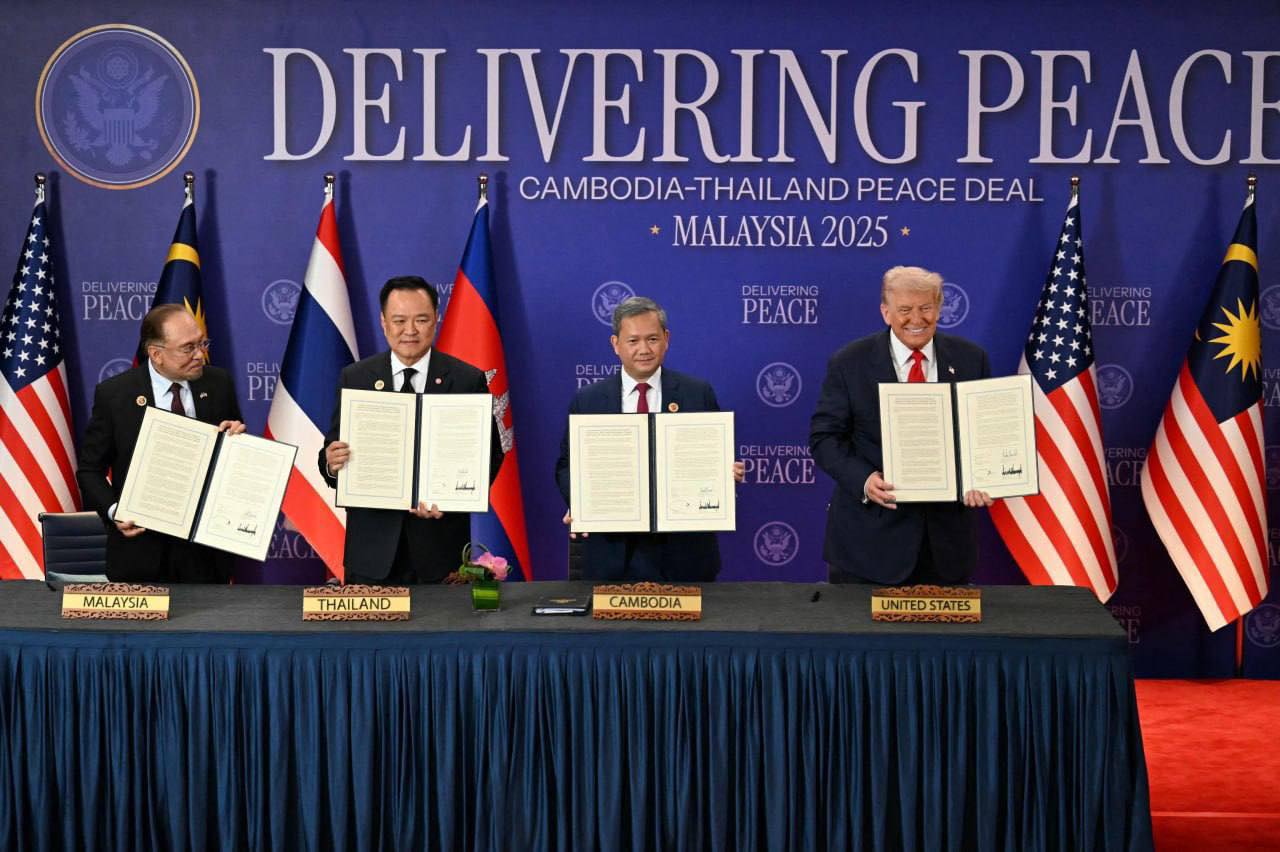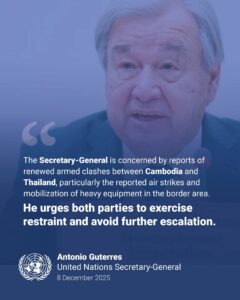Border Demarcation Must Be Based on International Law, Not on Extreme Nationalism or Social Media Provocations
 Border Demarcation Must Be Based on International Law, Not on Extreme Nationalism or Social Media Provocations
Border Demarcation Must Be Based on International Law, Not on Extreme Nationalism or Social Media Provocations
The Cambodia–Thailand Peace Agreement, signed in Kuala Lumpur, Malaysia, on October 26, 2025, marks the end of decades-long tension along the Cambodia–Thailand border. This agreement is not merely a political peace settlement but a historic turning point, ushering both nations into a new era of cooperation for peace and development.
However, following the signing of the peace agreement, a wave of political debate has emerged—much of it fueled by emotional nationalism or subjective interpretations by citizens of both countries on social media. Heated online discussions and personal interpretations of “territory lost or gained” have become a new political phenomenon, revealing a lack of comprehensive understanding about the official process of border demarcation and pillar placement.
The demarcation and measurement of borders is a long and complex process that combines legal, historical, technical, and diplomatic components—none of which can be separated. Under international procedures, the final decision on border demarcation must follow the standard procedures of the Joint Border Commission (JBC), which is the only legitimate body authorized to handle this matter. No other mechanism or entity has the authority to do so.
As Thai Prime Minister Anutin Charnvirakul stated, both Cambodia and Thailand have overlapping areas along the border. His statement reflects a spirit of political honesty and internationalism, recognizing that “if there is an official agreement, any area found overlapping shall be returned accordingly.” This does not signify territorial loss, but rather an acknowledgment of the legal rights of neighboring countries in accordance with international law and officially recognized historical maps.
This marks a major political shift—from emotional or extreme nationalist approaches and military posturing to law-based diplomacy and international political integrity.
In a modern democracy, public opinion is a legitimate right. However, opinions driven purely by nationalist emotions or without legal basis can undermine the direction of peace building. Therefore, public discussions and media debates about border issues should be grounded in knowledge of international law and official government documents from both sides.
It should also be emphasized that border affairs are not the responsibility of the military or civilians, but of the official Joint Border Commissions of both countries, which operate strictly under legal frameworks and assigned mandates.
The Thai Prime Minister’s statement is not just a personal message—it symbolizes Thailand’s governmental commitment to maintaining peace through diplomacy. It shows that Thailand now values peace over displays of military power.
The mention of providing resettlement areas for relocated citizens demonstrates a respect for human rights and social security, forming part of a humanitarian policy. It indicates that border management is not merely a cartographic issue but also a political, human, and social matter that requires understanding and shared responsibility.
This process illustrates that the future of Cambodia–Thailand relations will be based on legal cooperation and respect for international law. The Kuala Lumpur Peace Agreement is not the end, but the beginning of a new era that could restore mutual trust and promote economic development along the border.
Historically and going forward, Cambodia’s position has always been to resolve border issues in accordance with international law, upholding sovereignty, equality, independence, and territorial integrity as fundamental principles.
If both countries continue to adhere to law, peace principles, and mutual respect, long-standing border disputes can transform into a solid foundation for political and economic cooperation in the region.
Border demarcation must therefore be carried out in accordance with international law and formal agreements, not based on emotion, speculation, or subjective interpretation. The Kuala Lumpur Peace Agreement and the Thai Prime Minister’s statement affirm that peace can only be achieved through diplomacy and mutual understanding.
Both nations must continue to cooperate based on international legal principles, mutual reconciliation, and friendly relations, so that the Cambodia–Thailand border becomes a bridge of peace and friendship, not a barrier or a source of territorial conflict.
By: Pin Vichey – Political Science Scholar




